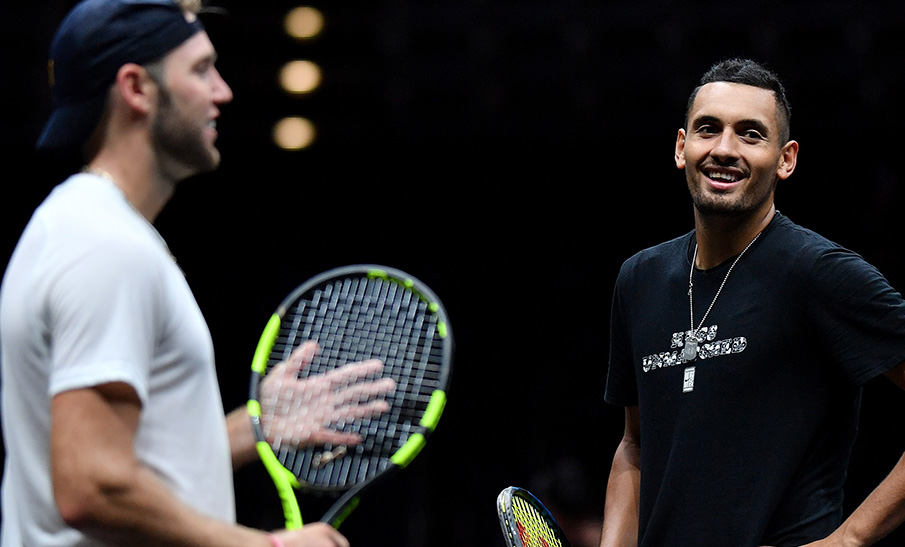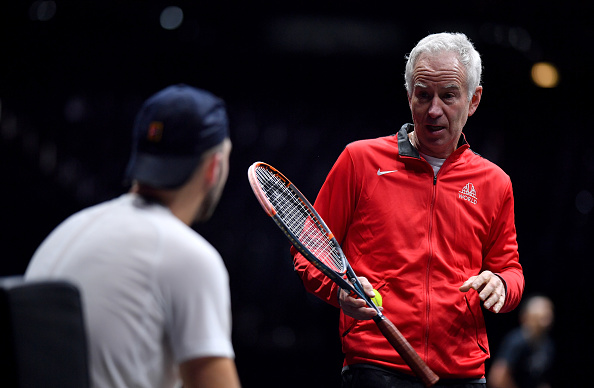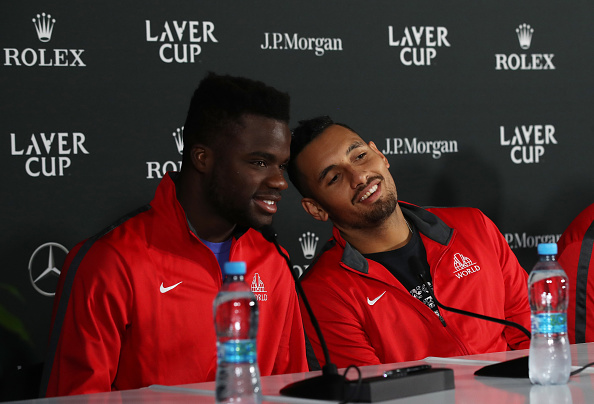
Team tennis brings out the best in some players, while others crumble under the pressure. So how will this impact the scoreline when Europe takes on the World this weekend?
A cynic might argue that ‘team tennis’ is a contradiction in terms. Tennis is an individual sport, so why should a team event be any different? After all, it’s not as if team tennis involves six players on each side of the net hitting one ball, like in volleyball – it’s still the same sport as on the tour.
And yet it is different. Simply the fact that the umpire calls ‘Advantage USA’ or ‘Game Czech Republic’ – or at the Laver Cup ‘Advantage Europe’, ‘Game World’ – takes team tennis onto a different plane from the regular tour. For some players that’s great – the history of team competitions is full of stories of shock results where players defied their ranking to beat a much more fancied opponent.
But for others it can be a millstone round their neck, where the pressure of carrying the hopes of a country, or even a smaller geographical unit like a college team, proves just too much and they wilt under the pressure.
John McEnroe always loved the team ethic. Part of it was sheer patriotism (he even wore his USA Davis Cup tracksuit top when he walked out to play at Wimbledon), but part of it was the joy of playing for a team.

When Roger Federer finally won the Davis Cup in 2014 after years of being reluctant to give the competition prominence in his playing schedule, he said the satisfaction was not in winning a trophy but in doing something with his teammates. And Novak Djokovic says he was “freed up” by winning the Davis Cup for Serbia in 2010, which paved the way for his phenomenal run of success that started at the 2011 Australian Open.
For some players there’s a rational explanation for playing better in a team. Those prone to losing heart if a match isn’t going their way are more likely to fight if they’re playing for their teammates, their country or even their continent than if they’re just there for themselves.
Having a captain to give tactical and uplifting advice every two games can also be crucial. Look at the French player Nicolas Escude: in 2001 he won five out of five live singles rubbers, including two in the final, as France won the Davis Cup. He even beat the world No 1 Lleyton Hewitt, consigning Hewitt to a select group of world No 1s who have all lost in Davis Cup finals (Pete Sampras in 1997, Jim Courier 1992, John McEnroe 1984). Courier was beaten by Marc Rosset, who had been asked by a journalist before Switzerland’s 1992 semifinal what his ranking was. “I’m not telling you,” replied Rosset. “This is Davis Cup, team tennis – rankings don’t matter.” And he proved himself right by beating Courier.

That’s why the strongly favored Team Europe may not have it all its own way this weekend. If we ignore rankings and look at those who thrive in a team environment, Team World is not so far behind. John Isner and Sam Querrey have been loyal Davis Cup servants when called on, and both have good records (Querrey once took a set off Nadal on clay in Madrid).
Sock and Kyrgios have both proved themselves good team players, and Shapovalov comes to Prague fresh from winning his two singles in the Davis Cup playoff round. In addition, Team World vice captain Patrick McEnroe was the winning captain when the USA won the Davis Cup in 2007.
Not that Europe has a bad record – three of its six players boasting Davis Cup winners’ medals – but that doesn’t alter the fact that rankings are a poor guide to team tennis. Melding different personalities is all part of the captain’s and vice captain’s job, and sometimes a happy team is greater than the sum of its parts.
Had he been alive, Arthur Ashe would have fitted seamlessly into the Laver Cup culture. A Davis Cup winner as player and captain, Ashe once said: “True heroism is remarkably sober, very undramatic. It is not the urge to surpass all others at whatever cost, but the urge to serve others at whatever cost.” That neatly sums up the attitude and skillset it takes to be a member of a successful tennis team.